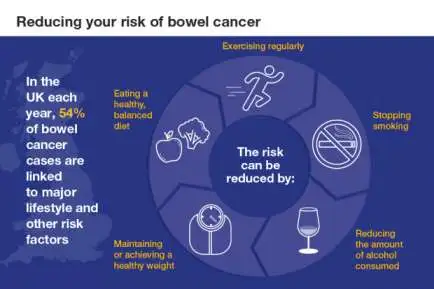
It’s that time of year again: the leaves are falling, the temperatures are dropping, and all things scary and spooky are on store shelves. While pumpkin picking and catching a hay ride are (for all intents and purposes) “low carbohydrate” activities, trick-or-treating can be anything but. So, how do you handle Halloween with a young child with diabetes? Do you allow them to “be a kid” for an evening, and go all out on the chocolate and sugar spike? Or do you limit them to a few, portion-controlled treats, with a food scale nearby? While there’s no one right answer to this question, here are some helpful tips to make your Halloween a little less spooky this year.
Take the Focus Away from Food
This is helpful for all children, for all holidays. No holiday needs to be 100% about the food, especially for a child with diabetes. For Halloween specifically, focus on carving pumpkins, watching scary movies, dressing up in really elaborate Halloween costumes, and yes, if you and your child wish, some candy, too.
Noelle from California says, “Our kiddo is three so our main focus is on creating traditions that will be helpful for her later on with type 1. For parties, I create treats that aren’t food-related.”
Lila from New York City says, “We completely avoid the candy thing. Trick or treating isn’t a huge deal in our neighborhood, so this hasn’t been an issue yet.”
Kate, from Pennsylvania, says, “We go out a little, but limit the number of stops. After we get home, we go through our candy, keeping only what we really, really like. The rest, we give to the Switch Witch, and she brings the girls a little present in the morning as an exchange for giving her their candy.” There’s even a book you can buy that helps explain the magic of the Switch Witch.
Create Unique Traditions
Perhaps you have a spooky, scary dance party or movie night on Halloween, or the whole family dresses up in matching costumes to go walking around the neighborhood. Maybe you bob for apples or roast pumpkin seeds after carving, or let your child have a few friends sleepover. Creating unique family traditions that are inclusive will be beneficial not only for your child now, but will be helpful as they grow up with type 1 diabetes.
Be Wary About Restrictions
Be cognizant about putting too many restrictions on candy for your child. Children with diabetes are much more likely to develop an unhealthy relationship with food. If your child really wants to indulge, just make sure they’re carbohydrate counting appropriately, and let them enjoy themselves (within moderation, of course). Most of the time children intuitively eat anyway, and don’t actually end up eating that much candy.
Melissa, from Iowa, says, “We bring any candy home and carb count it ahead of time, and then put a post-it note on each piece, so our daughter can dose appropriately whenever she’s hungry or wants a treat.”
Plan Ahead
Like all things diabetes-related, it helps to plan ahead. Make sure your child eats dinner with some protein and fat before going trick-or-treating, so they’re not just eating sugar on an empty stomach, which can cause the roller coaster effect. Make sure you know where and how far they’ll be walking, or better yet, walk along with them. Have your child carry low snacks (they shouldn’t solely rely on candy that won’t have any nutrition facts or carbohydrate information on it), and make sure they’re drinking plenty of water. It’s helpful if your child also has fresh continuous glucose monitor (CGM) and insulin pump sites on, but not absolutely necessary.
Hannah says, “Planning ahead a learning to navigate holidays with type 1 diabetes is critical and so empowering once you find what works for you and your family.”
Don’t Stress the Small Stuff!
It’s important to remember that Halloween is only one night, and you shouldn’t stress the small stuff. Some parents of children with diabetes shy away from candy, while others let them indulge, and there is no one right answer. Do what works for you and your family, but don’t let the stress of one holiday ruin the evening for you and your child. Relax and let them have fun! They’ll be doing so much running around anyway that you’ll be glad they had the extra “low snacks” on them anyway.
Lija, from Minnesota, says, “We don’t do anything different for my type 1 and non-type 1, and it works out fine. We find that she tends to go low while out trick or treating, so she just eats and boluses a little while out; it isn’t actually a difficult holiday for us!”
The key is finding what works for you. There are no right or wrong answers. Here’s to a happy, spooky Halloween! Hopefully the candy (and subsequent blood sugars) are the least scary part.
How do you and your family handle Halloween in a household affected by diabetes? What tactics and strategies have helped you manage appropriately? Share your experience in the comment section below; we love hearing from our readers!
Post Views: 3
Related Post
 14
14 Aug
7 Essential Healthy Habits to Instill in Your Kids in 2024
In the high-speed universe of 2024, raising solid and balanced kids requires a blend of shrewd nurturing and adjusting to the most recent patterns. As guardians, it's critical to instill propensities that cultivate both physical and mental prosperity in our.
Read More 29
29 Jul
Which Symptom Indicates That Someone May Need Mental Health Treatment?
Today! In this article!, you can find the best treatment for mental health. Which symptom indicates that someone may need mental health treatment? Perceive the indications of requiring emotional well-being treatment and assume responsibility for your prosperity. Try not to hold.
Read More 08
08 Jul
What Is Self-Management of Chronic Disease?
Diabetes, joint inflammation, hypertension, lung illness, corpulence and other persistent sicknesses can make life challenging to oversee for a great many more seasoned grown-ups, frequently compelling them to surrender their freedom. The Challenges of Chronic Disease More established grown-ups are lopsidedly impacted.
Read More 01
01 Jul
7 Lifestyle Tips to Reduce Your Cancer Risk
How in all actuality do individuals bring down the possibilities getting malignant growth? There's a lot of exhortation. Yet, on occasion, guidance from one review conflicts with the exhortation from another. Disease avoidance data keeps on creating. In any case,.
Read More